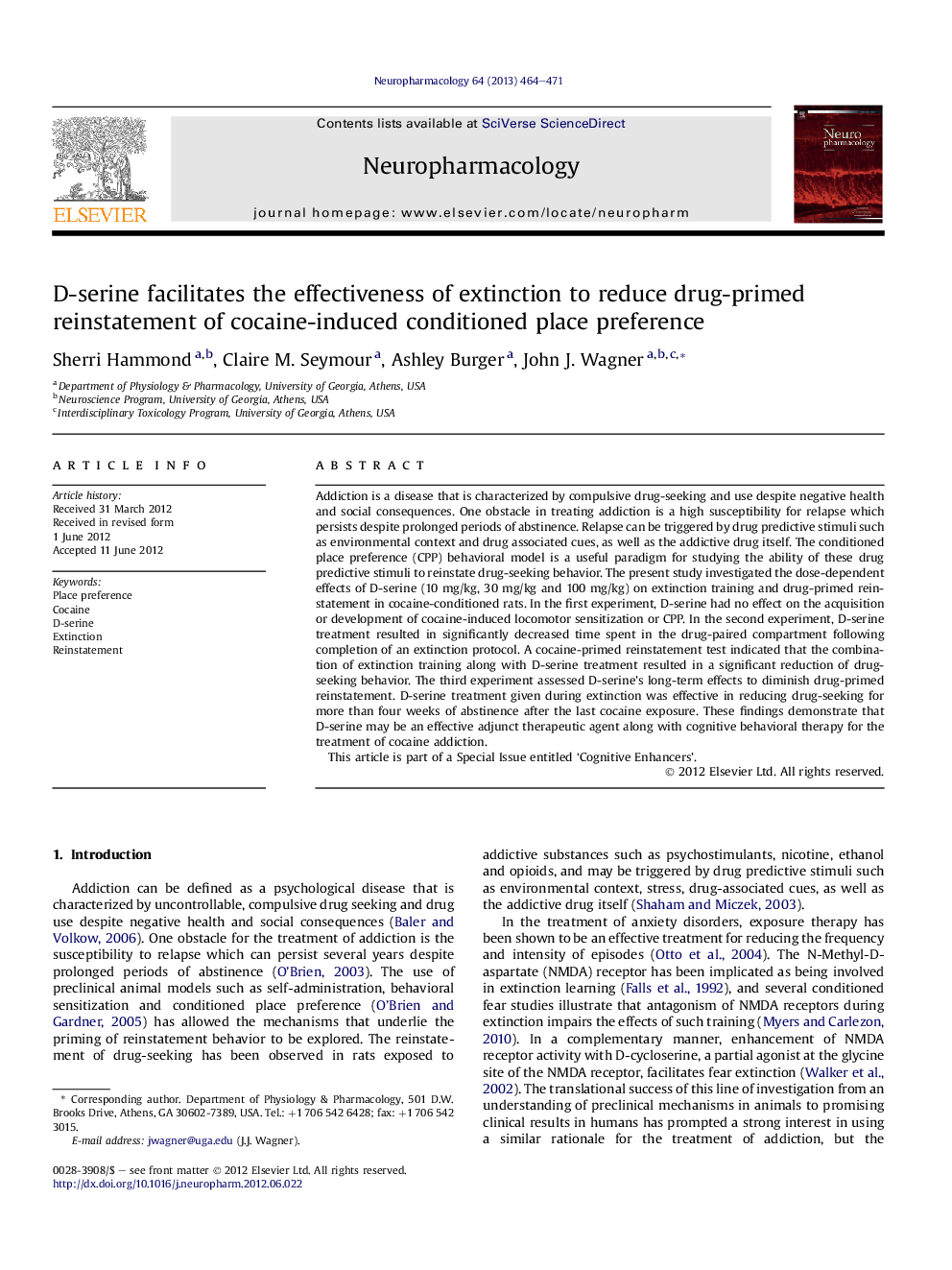| Article ID | Journal | Published Year | Pages | File Type |
|---|---|---|---|---|
| 5815442 | Neuropharmacology | 2013 | 8 Pages |
Addiction is a disease that is characterized by compulsive drug-seeking and use despite negative health and social consequences. One obstacle in treating addiction is a high susceptibility for relapse which persists despite prolonged periods of abstinence. Relapse can be triggered by drug predictive stimuli such as environmental context and drug associated cues, as well as the addictive drug itself. The conditioned place preference (CPP) behavioral model is a useful paradigm for studying the ability of these drug predictive stimuli to reinstate drug-seeking behavior. The present study investigated the dose-dependent effects of D-serine (10Â mg/kg, 30Â mg/kg and 100Â mg/kg) on extinction training and drug-primed reinstatement in cocaine-conditioned rats. In the first experiment, D-serine had no effect on the acquisition or development of cocaine-induced locomotor sensitization or CPP. In the second experiment, D-serine treatment resulted in significantly decreased time spent in the drug-paired compartment following completion of an extinction protocol. A cocaine-primed reinstatement test indicated that the combination of extinction training along with D-serine treatment resulted in a significant reduction of drug-seeking behavior. The third experiment assessed D-serine's long-term effects to diminish drug-primed reinstatement. D-serine treatment given during extinction was effective in reducing drug-seeking for more than four weeks of abstinence after the last cocaine exposure. These findings demonstrate that D-serine may be an effective adjunct therapeutic agent along with cognitive behavioral therapy for the treatment of cocaine addiction.This article is part of a Special Issue entitled 'Cognitive Enhancers'.
⺠D-serine dose-dependently facilitated the effectiveness of extinction training. ⺠D-serine significantly reduced cocaine-primed reinstatement. âºÂ D-serine had a persisting effect (>4 wks) to reduce reinstatement.
